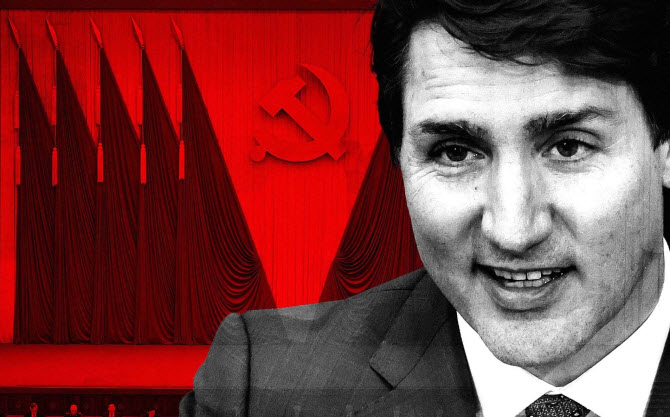
The growing debate over Canada’s proposed Online Harms Act, also known as Bill C-63, raises concerns about the erosion of democratic values. Critics argue that the legislation, aimed at curbing “online hate,” could transform Canada into an authoritarian regime rather than upholding democratic principles. The comparison is drawn with communist states that adopt deceptive names, similar to the former German Democratic Republic.
The Online Harms Act introduces severe measures, including hefty fines and up to life imprisonment for hate crimes, reflecting a trend towards draconian laws. The proposed amendments to the Criminal Code include a standalone hate crime offense applicable across all criminal offenses, with penalties extending to life imprisonment. The bill aims to address hate crimes more effectively, with substantial increases in punishments for existing hate propaganda offenses.
The definition of “hatred” is outlined based on a Supreme Court decision, encompassing content expressing detestation or vilification of individuals or groups on prohibited grounds of discrimination. The bill allows for complaints against those posting alleged hate speech online, leading to fines up to $70,000 and takedown orders for content. The Canadian Human Rights Tribunal, empowered by the amendments, can order payments for victims of online hate and fines payfable to the government.
The legislation excludes private messaging platforms like WhatsApp from its scope, emphasizing public communication. Critics argue that the bill infringes on freedom of expression and could lead to censorship. The government’s attempt to reintroduce Section 13, addressing “communication of hate speech” over the internet, has sparked controversy.
A new organization, the Digital Safety Commission, along with the Digital Safety Ombudsperson and the Digital Safety Office, is proposed to enforce rules regarding harmful online content, including materials victimizing children and deepfakes. The Digital Safety Ombudsperson is tasked with advocating for users’ rights and interests in the digital realm.
Conservative leader Pierre Poilievre opposes the law, accusing the government of using the issue to legislate censorship and infringe on Canadians’ free speech. The debate over the Online Harms Act highlights the delicate balance between protecting individuals from online harm and preserving fundamental democratic values, raising concerns about potential overreach and its impact on freedom of expression.
The comparison between Canada’s evolving legislative landscape and the former USSR prompts a critical evaluation of democratic values. The concern is articulated that Canada is gradually veering away from its democratic foundations, adopting measures that resemble those of an authoritarian regime disguising itself as a democracy. This parallel is drawn with historical communist states, exemplified by the German Democratic Republic (GDR), where the term “democratic” in its name belied its undemocratic nature.
The narrative underscores the emergence of draconian laws in Western democracies, suggesting a resurgence of authoritarian tendencies. The argument posits that countries implementing such stringent measures can no longer be unequivocally labeled as democracies, challenging the fundamental essence that distinguishes a democracy from a dictatorship.
In a true democracy, the right to freely express opinions, criticize, and even offend is considered sacrosanct. The contrast is drawn with totalitarian states, where citizens are constrained in their expression, fearing repercussions for speaking against leaders like Kim Jong Un, Xi Jinping, or Vladimir Putin. The narrative extends this concern to Canada, cautioning against offending its leader, Trudeau, under the implicit threat of consequences.
This commentary reflects on the pivotal aspect that defines a democracy, unrestricted freedom of expression. The narrative raises alarm about the perceived erosion of this democratic cornerstone in Canada, drawing parallels with historical instances where nations adopted deceptive nomenclature to mask their autocratic nature. It emphasizes the significance of safeguarding the right to dissent and criticize as an integral part of preserving the democratic character of a nation.
RELATED ARTICLES
- Gab implements subscription plans to Help stop Malicious Spam Bots
- Canada to PREEMPTIVELY Arrest People Who MAY Commit Hate Crimes in the Future
- Canada Borderline Bans Christianity, Outlaws Reading Aloud From Bible in Public
- New Canadian Bill Aims to Fine and Jail 'Promotion of Fossil Fuels'
- InfoWars Host Owen Shroyer is Taking His Free Speech Case to the Supreme Court











